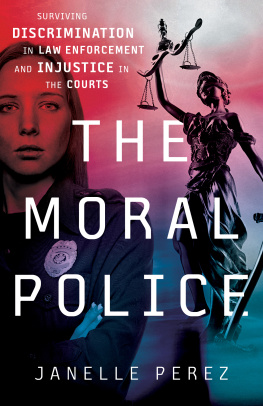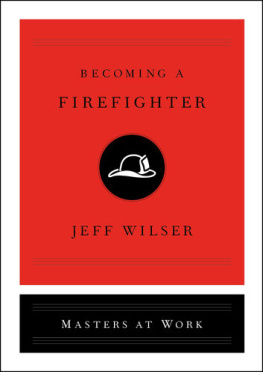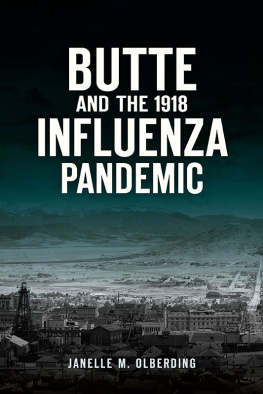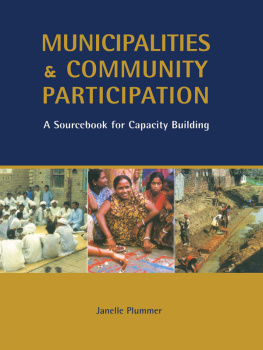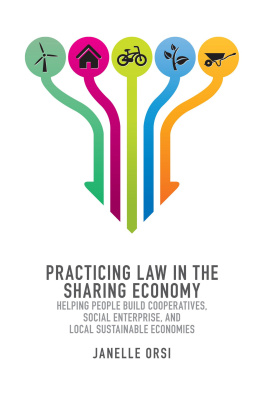Throughout this book, names and identifying information have been changed for some individuals. Where dialogue appears, it is intended to recreate the essence of conversations rather than to be taken as verbatim quotes.
Introduction
Every single person is one bad decision away from a completely different life. I kept this belief in mind as I closed the door on a naked woman who was screaming incoherently in the back of my police cruiser. Id answered a call about a disturbance at a cheap little hotel in a rundown part of the city, and when I arrived, I found this woman high out of her mind on drugs. I got her safely into my car, treating her with the same respect Id shown to the man who had called several hours earlier to report a stolen car.
As I drove the woman to the station, I thought of my own family. I was familiar with what drug addiction could do to a person; Id seen my aunts and uncles in the throes of addiction. Id also seen them sober. I knew them to be good people who had their lives taken away by one bad decision.
Every decision has a consequence. I didnt judge the woman who was high and raving in my back seat. In the course of my police work, Ive seen so many people make the wrong decisions in their weakest moments. I wondered how her life would change as a result of the decisions she made that day.
One bad decision ended up changing my life, too. When I was a police officer, I was married and later separated from my husband. I started dating a fellow officer who had separated from his wife. Though our relationship wasnt against any police officer codes of conduct, it became the subject of an internal affairs investigation. I was fired. He was not.
Maybe I could have seen that coming; Id been on the receiving end of gender discrimination in my police department previous to my termination. During the investigation into our relationship, it took all my energy to stay calm and ask questions about procedure and protocol. Even after the investigation concluded, my behavior was scrutinized. I was labeled as angry and argumentative for asking questions about department policy. Meanwhile, my male counterpart stormed into his superiors office and yelled at the lieutenantbut his outburst was brushed off as an understandable need to vent. Though Id done nothing wrong, my superiors judged me for my marital status and treated me far more harshly than my counterpart. He raved at his boss and kept his job. I calmly asserted myself and lost my career.
I consulted with a lawyer who thought I had a strong case, and I filed a lawsuit against the city for wrongful termination, gender discrimination, violation of civil rights, and violation of due process. During the lawsuit, I felt invigorated: I wasnt going to roll over and move on with my life like my superiors probably expected me to. I was going to stand up for myself and take my power back with my voice.
My case initially lost at summary judgment, and I was crushed. It seemed crystal clear to me that I had been discriminated againstwhy was I the only person who could see the injustice that had been done? I wondered if there was something wrong with me. I felt fragile and uncertain. I nearly threw in the towel. But Im not a quitter; I dug deep rock - bottom deepand found the tenacity to continue. I would not allow my voice to be taken away.
After years of legal battles, I won the violation of civil rights claim in the 9th Circuit Court of Appeals. When I got the news of this victory, I felt validatedI wasnt delusional or crazy; the discrimination Id experienced really happened, and it wasnt right. I reveled in the judges ruling that any reasonable official would have been on notice that, viewing the facts in the light most favorable to her, Perezs termination was unconstitutional. I was going to get my day in court, to show the pattern of discrimination to a jury of my peers.
Then in a cruel twist of fate, one of the presiding judges on my case died. The case was swiftly reheard (which is not standard practice with all court cases), one of the original judges changed his mind, and the initial decision was reversed. I lost.
If I could take back that one decision to begin that relationship, I would in a heartbeat. I believe in regrets. The relationship was not worth my job, the money I paid in attorneys fees, or the years I spent thinking about everything that went wrong as I tried to defend myself against decision - makers from the chief of police to the judges in the 9th Circuit Court of Appeals.
Im telling my story here because I know Im not the only one who has gone unheard by people in power. Ellen Pao, former interim CEO of Reddit, faced a similar scenario, which she wrote about in her memoir Reset: My Fight for Inclusion and Lasting Change. In the book, Pao describes how she had a brief relationship with a married coworker while she worked at Kleiner Perkins and suffered gender discrimination and retaliation. She filed a lawsuit against the firm for gender discrimination. She was later fired for underperformance. While she lost the case, her suit inspired many other women in tech to speak up and file their own discrimination lawsuits against their employers.
Im grateful for these women and others who stood up for themselves and paved the way for women with the same struggles to come forward. Im grateful for women like Madeleine Albrighta female minority surrounded by powerful men in the halls of governmentwho I saw speak at a conference in 2019. She told the audience of mostly women that she refuses to be quiet. That every persons voice matters. Listening to her, I realized if I have the opportunity to expose the injustice Id faced, it was my obligation to use my voice for the betterment of the world.
It took me seven years to find my voice. Along this multiyear - long journey, I discovered its okay to not be okay. Its okay to be angry, sad, mad, passionateany of the emotions in our natural range of experience. I turned to therapy, writing, exercising, spending time alone, speaking with confidantes, and listening to music to heal. Ive learned that being brave and courageous is far from easybut it is necessary.
When women decide to speak up, were labeled as problematic and argumentative. Despite that label, I refuse to be shut out or swept under the rug. I feel empowered to count myself among a group of strong women who rightfully acknowledge what has happened in our workplaces and in our legal system, who are standing up to defend ourselves against the discrimination weve faced. I am one of many.
One decision tanked my career and changed my life. I hope my decision to speak up changes the lives of women who are finding their courage to give voice to the discrimination theyve faced. When I was fighting the injustice done to me, I needed to hear stories like mine to know I was not alone. If you have experienced discrimination and bigotry in your workplace, in the legal system, or in your community, I hope my story helps you stand up and share yours. It takes a strong group of us to challenge policy and create change, and we inspire courage in each other when we share our stories.

